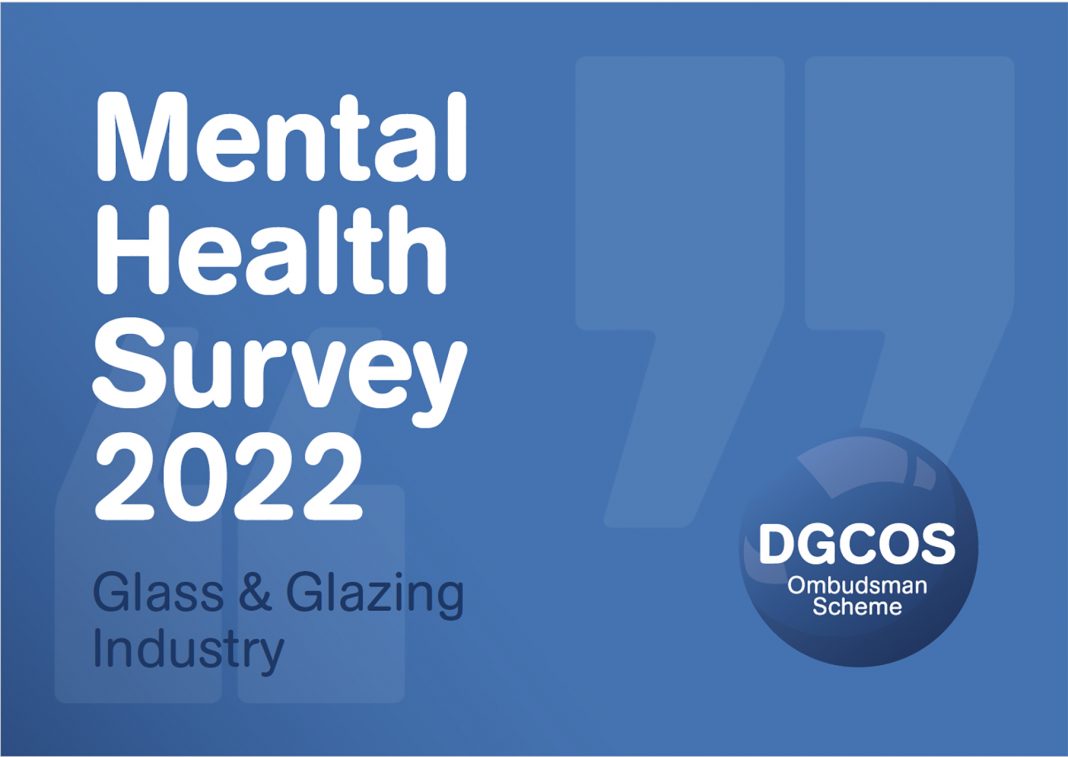New figures on the state of mental health in the industry post-pandemic paint a picture of growing workloads, staff shortages and the stress of chasing payments all against a backdrop of lack of understanding from employers and customers along with a general lack of awareness about mental health in the sector.
The Double Glazing & Conservatory Ombudsman Scheme (DGCOS) Fenestration Industry Mental Health Survey shows too much work is by far the biggest cause of problems, cited by 73.7% of respondents, followed by staff shortages (52.6%) and customer complaints (50%), with Covid (47.4%) and chasing payments (44.7%) close behind.
This was reflected in the respondents’ views on what would help their situation; more than half (52.6%) said more understanding from customers and over a third (34.2%) said more staff.
Some 89.5% of respondents have seen an increase in their workload since the Pandemic; with 76.3% saying they are experiencing burnout from their workload. On the issue of mental health generally, 86.8% believe there isn’t enough awareness of it and sadly, 60.5% believe there is a mental health crisis in the glazing industry.
The issue was raised by DGCOS chief executive Faisal Hussain who launched the survey after a chance encounter with a colleague https://www.the-glazine.com/?p=5276 .
He explained: “When we first set about conducting this survey, we were driven by a subjective and anecdotal belief that people were struggling with mental health, but just not really talking about it. We wanted to understand the thoughts and experiences of those working in the sector. However, the scale of what we’ve uncovered during the confidential survey, are objective proof of how just serious and widespread the challenges are.
“The sample of respondents was representative of age, gender and job functions, with a common theme reported by the majority: almost half of those questioned say they have felt ‘very stressed’ over the last two years, with a more than one in three feeling ‘very anxious’. There was a variety of reasons behind the mental health struggles with the top three being ‘too much work’, ‘staff shortages’ and ‘consumer complaints’. Interestingly, COVID-19 ranked in the fourth place. What is even more concerning however, is that despite the widespread scale of the problems, half of all respondents reported that they have never confided in friends or work colleagues.
He added however: “There were some positives to come out of the survey, in that just under one in two respondents said their employer was very supportive. So where does this leave us for the future? There were lots of suggestions for how we can create more mental health support in the workplace: including more understanding from customers, more staff, more focus on wellbeing including company mental health days and training. Interestingly, pay rises trailed well behind in terms of importance. Obviously not all of these changes can be made overnight, but they do give us a goal to head for.
“We hope the results provide valuable insights which will help the industry collectively to put together some form of collaborative support mechanisms, and I’d interested in hearing from anyone who would like to progress this with me. We’ve said it many times before, but DGCOS is never afraid to talk about the issues that others steer clear of and this survey is proof of just that. We’re proud to have started the dialogue by drawing attention to very real mental health challenges in the glass and glazing sector: now it is time for action.”
The full report can be downloaded here












